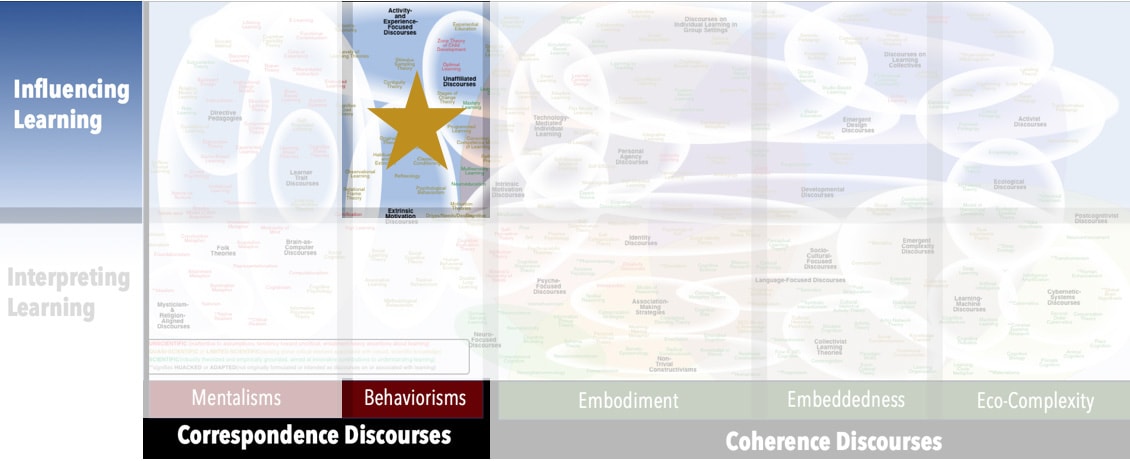AKA
Statistical Learning Theory
Focus
Associating clusters of stimuli with specific movementsPrincipal Metaphors
- Knowledge is … all established patterns of activity
- Knowing is … replicating motions (triggered by a combination of stimuli)
- Learner is … a motion replicator (individual)
- Learning is … linking (a movement to a combination of stimuli)
- Teaching is … structuring experiences
Originated
1950sSynopsis
Stimulus Sampling Theory draws on Contiguity Theory’s premise that a specific stimulus–response pairing is learned in a single trial. The overall learning process, however, is seen as more continuous and comprises many stimulus–response pairings. Framing matters in terms of probabilities, Stimulus Sampling Theory looks at the chances a particular stimulus in a trial will be paired with particular response. That probability is calculated by dividing the number of stimuli in the trial by the total number of stimuli associated with the response. Stimulus Sampling Theory has generated a range of mathematical models, most of them linear, used to predict learning curves. (Note that the phrase “Statistical Learning Theory,” an alternative name of Stimulus Sampling Theory, is also used within Learning-Machine Discourses to refer to a very different perspective.)Commentary
With a sophisticated statistical grounding, Stimulus Sampling Theory contributed to more rigorous approaches to research on learning. That said, the theory made few significant conceptual contributions, and it still criticized as too simple and reductionist to account for some more complex elements of learning.Authors and/or Prominent Influences
William EstesStatus as a Theory of Learning
Stimulus Sampling Theory is focused more on how to make learning happen (i.e., on the conditions in which assumed or desired associations between stimuli and movements will happen), and so it’s more a theory of influencing learning than a theory of learning.Status as a Theory of Teaching
Stimulus Sampling Theory is a theory of structuring situations and experiences to compel learning – which pushes it into the category of theories of teaching.Status as a Scientific Theory
Stimulus Sampling Theory had some success in accounting for some specific sorts of learning, such as free recall, preferential choice, and concept identification. However, with regard to more complicated skills and concepts, its evidence base fell well short of its lofty hopes.Map Location

Please cite this article as:
Davis, B., & Francis, K. (2022). “Stimulus Sampling Theory” in Discourses on Learning in Education. https://learningdiscourses.com.
⇦ Back to Map
⇦ Back to List
